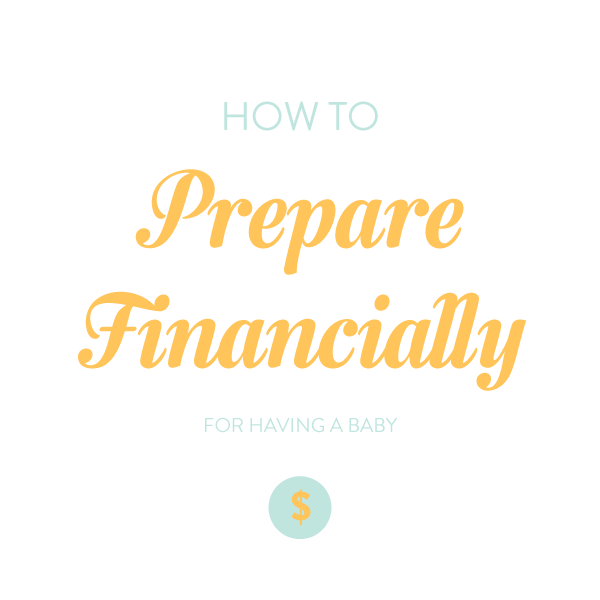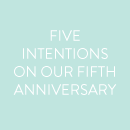Marvelous Money: Preparing financially for a baby
Well, here it is: the most frequently-requested topic since I started Marvelous Money. I have resisted writing on it since I have not, in fact, had a baby, and therefore feel under-qualified to write about what someone should do to prepare for having one, but the requests kept coming. So, after thinking about it for many months, I figured I would do this:
1. Put my best attempt forward, based on things John and I have thought about or I have discussed with the wise people around me.
2. Ask for your advice in the comments!! People who have had babies, I want to hear from you!
3. At some point in the future, after I have actually had a baby, come back and write a follow-up post. Hopefully I will not be crying tears of laughter at myself.
Alright, let’s do this! My best tips for preparing financially for a baby:
1. Start saving. Just start saving money. It doesn’t matter if you don’t know what it’s for, or how much you need to save, or whether or not you’re pregnant. If you’re thinking about having a baby, start saving money. It’s always a good idea to save, but you will surely need it for something if you’re adding a new member to the family. Money is not everything, but generally, the more money you have, the more choices you have.
2. Start, build, or top-off your emergency fund. If you currently have no emergency fund and are pregnant, it’s unlikely that you’ll be able to set-aside three to six months of savings in nine months (it took us two years). That’s okay! But just because you can’t do it all doesn’t mean you should do nothing. At the very least, set aside $1,000 to deal with unexpected expenses.
3. Find out what your out-of-pocket maximum is and save that amount. I hear that it’s a little bit expensive to be pregnant and to actually birth a baby. Therefore, it’s entirely likely that you will not only hit your insurance deductible but reach your out-of-pocket maximum. If you have an HSA, your maximum could be thousands of dollars (ours is $4,500). Read up on your health insurance plan and be smart about what expenses you could be looking at.
4. Research your maternity leave. If you currently have a job and don’t know if you have maternity benefits or what they look like, now is the time to find out! How long is it? Do you get paid? Full salary, or partial? What does FMLA leave mean for you? If you won’t be getting paid, discuss with your spouse how you will make up the difference in your household budget – savings? Cutting back on expenses?
5. Try to make some of your income more passive. If you are an entrepreneur or a creative person, brainstorm ways to bring in more passive income during your maternity leave, if possible. This could look like an invitation download if you have an Etsy shop, or an e-book if you blog, or even working ahead (if you sell a product) to have items ready to ship. Not relevant for everyone, but I wanted to mention it!
6. Talk with your spouse about what you want your life to look like. And use that discussion to estimate how your costs might change. Are one of you planning to stay home? For one year? For ten years? How will you make up the difference in your budget? How will your budget absorb the additional expense of a child? Are you on the same page about where you’ll cut back, if necessary?
7. Research childcare options. If you’re planning to have any sort of childcare, what will it cost? Full time day care? Full time nanny? Part time? Grandparents? Request information or ask around and figure out how much each option costs in your area. Brainstorm how you will fit this money into your budget.
8. Make sure you have the important things in place. While not completely financial in nature, making sure you have a living will in place, life insurance coverage, and other important grown-up items becomes even more important when you bring a child into the picture.
Adorable niece! (And adorable sisters, too.)
9. Think simple! Yes, there are mandatory expenses that come along with having a baby – but I think most of the time a lot more money is spent on a new baby than is actually necessary. John gets annoyed at me when I say things like this, because he thinks I’m being naive. Maybe I am, but in talking to friends and observing the world, I think there is a lot of truth in that statement.
My eyes were opened when talking to my friend M. Her daughter was born six weeks early. She had just had her shower the day before; she and her husband were planning to fill in the gaps in the next few weeks to make sure they were ready for baby’s arrival. Instead, they spent the next few weeks in the hospital and never went on that big purchasing trip – they just bought what they needed as they needed it, and most things they never ended up purchasing at all.
From what I hear, babies don’t need a whole lot. They certainly don’t need a fancy nursery. They don’t need a ton of outfits (probably a multi-pack of simple onesies would be fine to start). They don’t need a special blanket to lie down on or cover them in their stroller (you probably have an extra blanket in your house you could use). I’m not saying these things aren’t lovely or useful or that I might partake in them myself – but if you’re worried about the cost of a new baby, I want to encourage you that there are many ways to reduce expenses. Borrow or purchase items from older friends or siblings. Shop consignment sales and stores for clothing. Search Craiglist for used items at a fraction of the price.* I know I will be doing all of the above!
To conclude, there are a lot of big questions, and words like “saving” and “budget” and “thousands,” in this post. Yikes! Instead of being discouraging or overwhelming, I hope it leaves you feeling empowered. I worry sometimes that a future child will derail the financial momentum John and I have worked so hard to build, but I think being brave and thinking ahead is the best way to ensure we have as many options as possible when the time comes. I hope you feel the same way!
Friends, I would LOVE to hear from you!! If you have a child, what, if anything, did you do financially to prepare your family? Does this advice ring true or am I totally off? If you are thinking about having a child, what financial questions do you have?
*Safety standards are updated often, and I know there are certain items (cribs, car seats) that experts recommend buying new. Make sure to do your research!
























